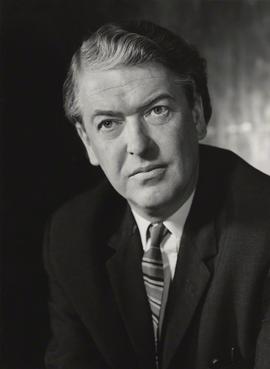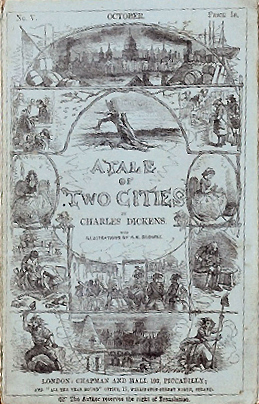
Sir Kingsley William Amis was an English novelist, poet, critic and teacher. He wrote more than 20 novels, six volumes of poetry, a memoir, short stories, radio and television scripts, and works of social and literary criticism. He is best known for satirical comedies such as Lucky Jim (1954), One Fat Englishman (1963), Ending Up (1974), Jake's Thing (1978) and The Old Devils (1986).

Soho is an area of the City of Westminster in the West End of London. Originally a fashionable district for the aristocracy, it has been one of the main entertainment districts in the capital since the 19th century.

Highgate is a suburban area of London at the northeastern corner of Hampstead Heath, 4+1⁄2 miles north-northwest of Charing Cross.

The Admiral Duncan is a public house in Old Compton Street, Soho, in central London that is well known as one of Soho's oldest gay pubs.
James Douglas Graham Wood is an English[A] literary critic, essayist and novelist.
Julian Maclaren-Ross was a British novelist, short-story writer, memoirist, screenwriter, and literary critic.

Davy Byrne's pub is a public house located at 21 Duke Street, Dublin. It was made famous by its appearance in Chapter 8 ('Lestrygonians') of James Joyce's 1922 modernist novel Ulysses, set on Thursday 16 June 1904. The main character, advertising canvasser Leopold Bloom, stops at just before 2 pm for a gorgonzola cheese sandwich with mustard and a glass of burgundy while wandering through Dublin.

Robert Ian Hamilton was a British literary critic, reviewer, biographer, poet, magazine editor and publisher.

The Colony Room Club was a private members' drinking club at 41 Dean Street, Soho, London. It was founded and presided over by Muriel Belcher from its inception in 1948 until her death in 1979.

A Tale of Two Cities is a historical novel published in 1859 by Charles Dickens, set in London and Paris before and during the French Revolution. The novel tells the story of the French Doctor Manette, his 18-year-long imprisonment in the Bastille in Paris, and his release to live in London with his daughter Lucie whom he had never met. The story is set against the conditions that led up to the French Revolution and the Reign of Terror.
Greek Street is a street in Soho, London, leading south from Soho Square to Shaftesbury Avenue. The street is famous for its restaurants and cosmopolitan nature.
"The Waxies' Dargle" is a traditional Irish folk song about two Dublin "aul' wan" discussing how to find money to go on an excursion. It is named after an annual outing to Ringsend, near Dublin city, by Dublin cobblers (waxies). It originated as a 19th-century children's song and is now a popular pub song in Ireland.

The Oxford Bar is a public house situated on Young Street, in the New Town of Edinburgh, Scotland. The pub is chiefly notable for having been featured in Ian Rankin's Inspector Rebus series of novels. The Oxford Bar, or The Ox, is John Rebus's favourite pub in Edinburgh.

The French House is a pub and dining room at 49 Dean Street, Soho, London. It was previously known as the York Minster, but was informally called "the French pub" or "the French house" by its regulars. It sells more Ricard than anywhere else in Britain, and only serves beer in half-pints except on 1 April, when a recent custom has been that Suggs serves the first pint of the day.

Comptons of Soho is a gay pub in London. Situated at 51–53 Old Compton Street in the heart of Soho's 'Gay village', Comptons has been an integral part of London's gay scene since June 1986.

The House of St Barnabas, at 1 Greek Street, Soho, is a Grade I Listed Georgian building in London notable for its rococo plasterwork interiors and for other architectural features.

The Crown and Greyhound is a Grade II listed public house at 73 Dulwich Village, Dulwich, London. It is classified by CAMRA as a pub with a regionally important historic interior. The pub is affectionately referred to by locals as "The Dog", and sometimes as "The Dog and Hat". The pub is particularly noteworthy for its post-war connection to the British poetry movement. It is described by Nikolaus Pevsner as, "a cheerfully cross gabled pub".

Manette Street is a small street in the Soho area of London, linking the Charing Cross Road to Greek Street. Dating from the 1690s, and formerly named Rose Street, it is now named after the fictional character of Dr Manette in Charles Dickens's A Tale of Two Cities, who is described in the book as living on a quiet street corner "not far from Soho Square".

The Intrepid Fox was a pub at 97–99 Wardour Street, Soho, London, established in 1784 by the publican Samuel House, who named it after the prominent British Whig statesman Charles James Fox. The pub was located on the corner of Wardour Street and Peter Street.

Ian David Archibald Board was an English nightclub owner who ran The Colony Room Club in Dean Street in London's Soho district, from 1981 to 1994, having taken it over from Muriel Belcher who founded the private drinking club in 1948.
















